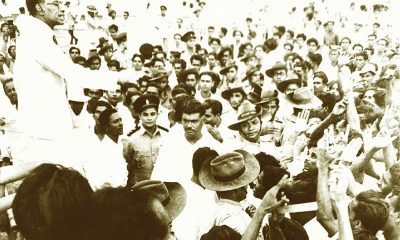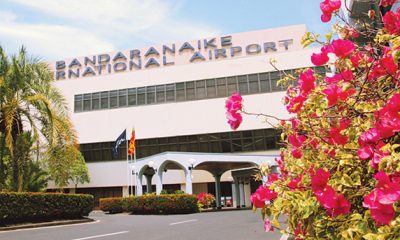News
President-toppling Sri Lanka activist girds for new revolt
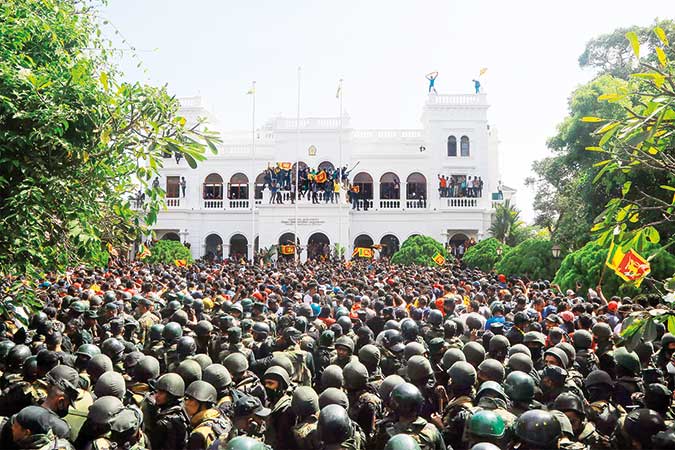
By Amal JAYASINGHE
A Sri Lankan jail witnessed a rare moment of accord last year when both prisoners and guards clamoured to greet its newest inmate: the man who toppled the island nation’s president.Student leader Wasantha Mudalige remains lionised by many for channelling public anger at an unprecedented economic crisis into a movement that shook the foundations of Sri Lanka’s political system.
At the height of last summer’s unrest, he helped spearhead a siege of government buildings in Colombo that saw once-loved president Gotabaya Rajapaksa chased into a humiliating exile.The 29-year-old, whose cherubic face belies his history of fierce confrontations with riot police, spent months behind bars on terror charges for his efforts.
“We had a very warm welcome,” Mudalige told AFP outside a court appearance in June, while recounting his arrival at jail alongside two confederates.
“Even the prison guards were very supportive. They saw us as the heroes who got rid of Gota.”
Mudalige said his incarceration was a necessary “sacrifice” in the unfinished battle to reform Sri Lanka’s political system.Now free on bail, he said lingering economic woes have left Sri Lanka bristling with discontent, frustrated with its new president — and ready for another revolt.
“Although we got rid of Gota, we have not been able to win the ‘system change’ that we demanded,” Mudalige said.
“We don’t think the government can go on for long,” he added. “When you analyse the situation, there is no way the government can continue.”
As head of the Inter-University Students’ Federation (IUSF) at the time, Mudalige stood at the forefront of last year’s street protests.Alongside him was a broad coalition of saffron-robed Buddhist monks, minority activists and ordinary citizens outraged by government corruption and mismanagement of the island’s worsening economic tailspin.
“They had no alternative but to take to the streets because they had no fuel, no food, no electricity… people were dying in petrol queues,” Mudalige said.
In July the IUSF and its allies laid siege to the Presidential Palace in Colombo.Rajapaksa, once lauded by the island’s Sinhalese majority for helping crush a decades-long Tamil separatist insurgency, was forced to evacuate the residence through a secret backdoor and temporarily fled the country.
Protesters streamed through the compound, gaping at its opulent furnishings and frolicked in its pool in the revelry that followed.
Rajapaksa’s successor, Ranil Wickremesinghe, quickly sought to restore order by directing police to arrest the movement’s leaders.Mudalige was caught in the dragnet the following month when police snatched him off the street as he left a demonstration against the crackdown.
He spent 167 days in custody, the longest stretch of detention of all those who participated in last year’s revolt.The most serious charges against him were eventually dropped after Amnesty International and other rights groups condemned his jailing.
Wickremesinghe has sought to restore Sri Lanka’s ruined finances with an International Monetary Fund bailout that commits his administration to an austerity programme.
The chronic food and fuel shortages that inflamed public anger last year have since ended as the government reined in public spending.But steep tax hikes, and the end of generous subsidies on electricity and fuel, have been deeply unpopular.Wickremesinghe says the reforms are necessary to bring Sri Lanka out of bankruptcy and restore economic growth.
He pledged in February to press ahead “regardless of the obstacles that anarchist political forces seek to create”.
His administration has maintained a tough line against protests, with periodic demonstrations quickly dispersed by tear gas and water cannon trucks.Mudalige said his detention and that of other protest leaders was an effort by the government to forestall a repeat of last year’s unrest.But he warned the public’s frustrations over the spiralling cost of living would inevitably bring people back to the streets, unbowed by the threat of violence.
“The government is using the police and the military to suppress any dissent. It is like pressing down a rubber ball in a basin of water,” he said.
“You can’t do it for long. It will inevitably bounce to the top.”
News
Colombo Metropolitan Region, Eastern Development Plan and the Greater Hambantota Project discussed in detail
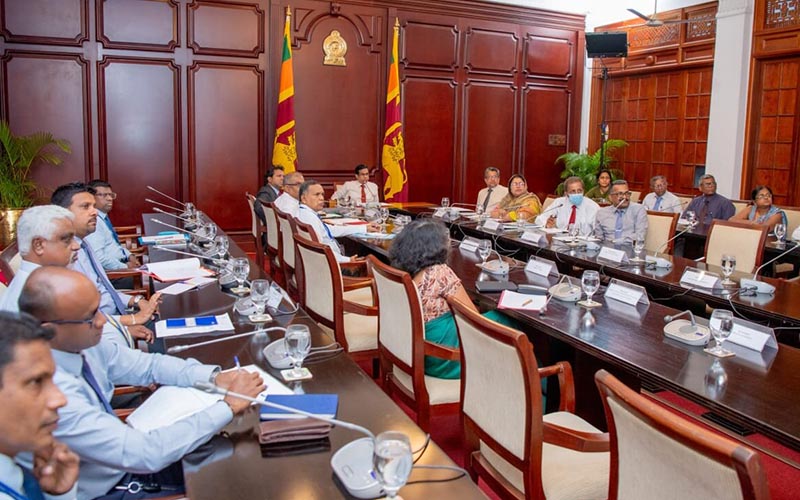
A meeting between Secretary to the President, Dr. Nandika Sanath Kumanayake and relevant ministry officials was held on Tuesday (08) at the Presidential Secretariat regarding the development plans to be implemented in Sri Lanka under three zones, in collaboration with the Surbana Jurong Institute of Singapore and 18 Ministries.
During the meeting it was discussed in detail regarding the plans for the Colombo Metropolitan Region, Eastern Development Plan and the Greater Hambantota Project. The officials from Singapore-based urban planning and infrastructure consultancy Surbana Jurong also joined the discussion virtually.
Progress reports on the three projects were reviewed in detail and Dr. Kumanayake instructed the officials to identify any deficiencies and finalize the necessary actions within the next two weeks.
The discussion also addressed delays in securing necessary approvals for investments under the existing regulatory framework, as well as the urgent need to revise certain legislative instruments to better facilitate national development.
The meeting was attended by Secretary to the Prime Minister G.P. Saputhanthri, Senior Additional Secretary to the President Russel Aponsu, Secretary to the Ministry of Urban Development, Construction and Housing U.G. Ranjith Ariyaratne, and several senior officials from the respective ministries.
News
Heat index at ‘Caution level’ in Northern, North-central, Eastern, North-western, Western provinces and Monaragala district today [09]
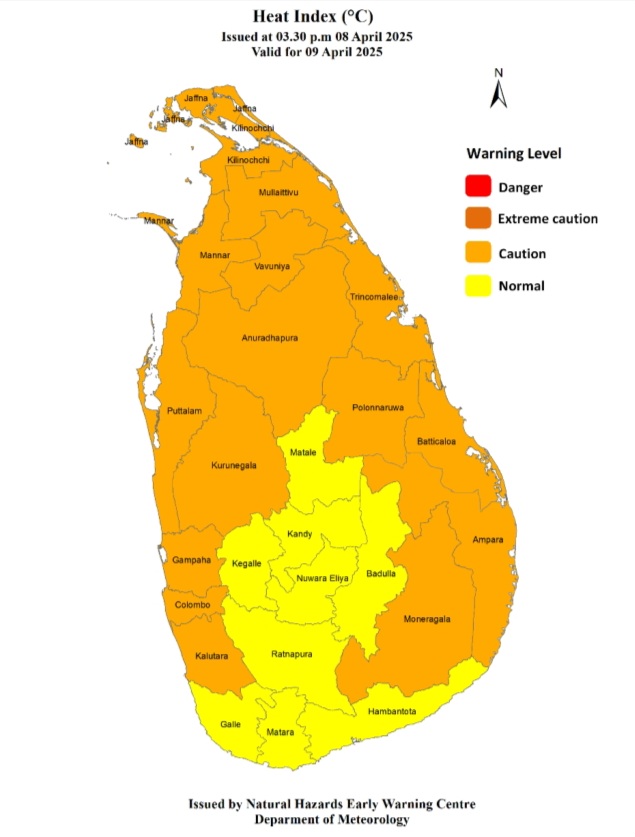
The Natural Hazards Early Warning Centre of the Department of Meteorology has issued a Warm Weather Advisory for 09 April 2025
The public are warned that the Heat index, the temperature felt on human body is likely to increase up to ‘Caution level’ at some places in Northern, North-central, Eastern, North-western, and Western provinces and in Monaragala district.
The Heat Index Forecast is calculated by using relative humidity and maximum temperature and this is the condition that is felt on your body. This is not the forecast of maximum temperature. It is generated by the Department of Meteorology for the next day period and prepared by using global numerical weather prediction model data.
Effect of the heat index on human body is mentioned below is prepared on the advice of the Ministry of Health and Indigenous Medical Services.
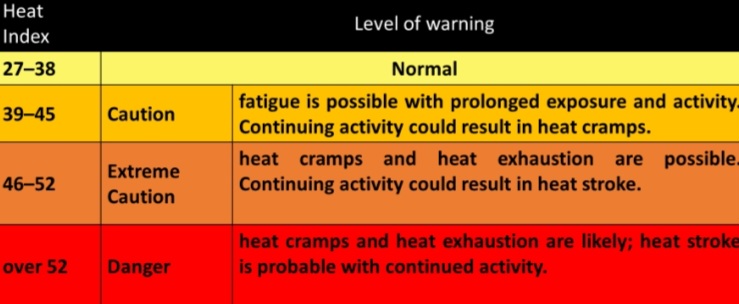
ACTION REQUIRED
Job sites: Stay hydrated and takes breaks in the shade as often as possible.
Indoors: Check up on the elderly and the sick.
Vehicles: Never leave children unattended.
Outdoors: Limit strenuous outdoor activities, find shade and stay hydrated. Dress: Wear lightweight and white or light-colored clothing.
Note:
In addition, please refer to advisories issued by the Disaster Preparedness & Response Division, Ministry of Health in this regard as well. For further clarifications please contact 011-7446491.
News
Sajith asks govt. to submit its MoUs with India to Parliament
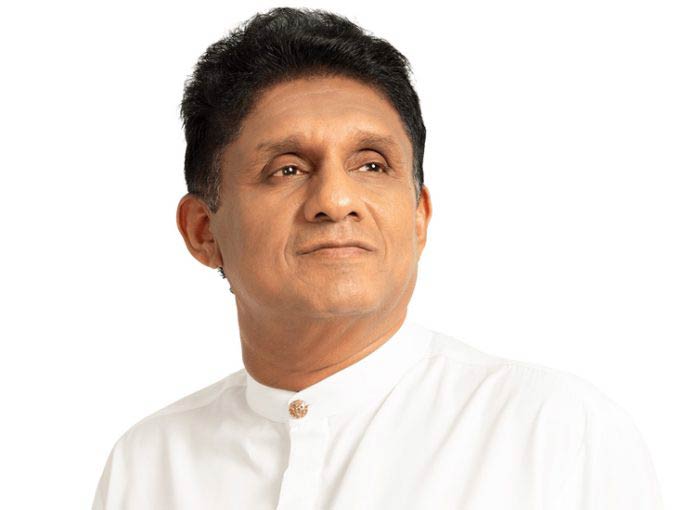
Prof. Jayasumana raises possibility of Lanka ending up with “Quad’
Opposition and SJB Leader Sajith Premadasa has said it is the responsibility of the NPP government to submit the MoUs/agreements that were recently signed with India to the respective Sectoral Oversight Committees (SOCs).
Premadasa said so when The Island raised the issue with him. He said that during his meeting with Premier Modi his focus had been on opening the Indian market for Sri Lankan garment exports.
The seven MoUs/agreements signed on 05 April included defence cooperation, energy, Eastern Province development and digitalisation.
Meanwhile, the Vice President of Sarvajana Balaya and former lawmaker Prof. Channa Jayasumana said that the government owed an explanation whether the recently signed MoU on defence cooperation directly or indirectly attached Sri Lanka to the Quad security alliance, consisting of the US, Australia, Japan and India.
 The former SLPPer raised the issue at a meeting held at Boralesgamuwa on Monday (07) in support of Sarvajana Balaya candidates contesting the May 6 LG polls.
The former SLPPer raised the issue at a meeting held at Boralesgamuwa on Monday (07) in support of Sarvajana Balaya candidates contesting the May 6 LG polls.
Prof. Jayasumana urged that the MoU on Defence Cooperation be placed before Parliament, and the people, without further delay. The academic who served as State Health Minister during President Gotabaya Rajapaksa’s tenure said that President Anura Kumara Dissanayake’s foreign policy direction should be dealt with.
By Shamindra Ferdinando
-

 Business3 days ago
Business3 days agoColombo Coffee wins coveted management awards
-

 Business5 days ago
Business5 days agoDaraz Sri Lanka ushers in the New Year with 4.4 Avurudu Wasi Pro Max – Sri Lanka’s biggest online Avurudu sale
-

 Features4 days ago
Features4 days agoStarlink in the Global South
-

 Business6 days ago
Business6 days agoStrengthening SDG integration into provincial planning and development process
-

 Business5 days ago
Business5 days agoNew SL Sovereign Bonds win foreign investor confidence
-

 Sports7 days ago
Sports7 days agoTo play or not to play is Richmond’s decision
-

 Features4 days ago
Features4 days agoModi’s Sri Lanka Sojourn
-

 Midweek Review14 hours ago
Midweek Review14 hours agoInequality is killing the Middle Class


